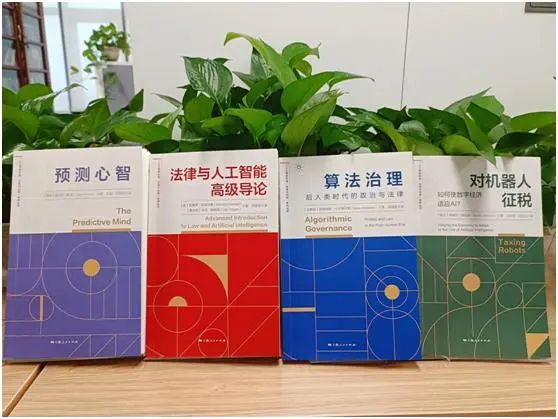Experts Recommend Technological Ethics And Artificial Intelligence Governance, And Recommend Strengthening Ethical Impact Assessment
Experts Recommend Technological Ethics And Artificial Intelligence Governance, And Recommend Strengthening Ethical Impact Assessment
On May 5, the "On Policies and Ways" salon of the professional think tank of the Beijing Association for Science and Technology was held, and experts exchanged ideas on hot topics such as China's cutting-edge scientific and technological innovation governance and artificial intelligence ethics. Gong Ke, executive director of China's New Generation Artificial Intelligence Development Strategy Institute, said
On May 5, the "On Policies and Ways" salon of the professional think tank of the Beijing Association for Science and Technology was held, and experts exchanged ideas on hot topics such as China's cutting-edge scientific and technological innovation governance and artificial intelligence ethics. Gong Ke, executive director of China's New Generation Artificial Intelligence Development Strategy Research Institute, said that the key to the healthy development of artificial intelligence lies in "artificiality". "Artificial" should make "intelligence" powerful and efficient, and at the same time have the best of love.
Generative AI should develop efficient and low-carbon AI infrastructure
Recently, the popularity has attracted the industry's attention to generative AI governance. How to grasp the relationship between development and governance? Gong Ke said that artificial intelligence is an advanced productivity with the leading effect. While vigorously developing artificial intelligence, we must attach great importance to risks and challenges, strengthen forward-looking prevention and constraint guidance, and ensure its safe, reliable and controllable development.
"Artificial intelligence is a revolutionary general technology and a pioneer of contemporary advanced productivity. Its development is not shifted by human will. Governance is to promote its healthy development, not to inhibit its development." He believes that there are four important relationships in AI governance: the relationship between development and regulation. For AI governance, including promoting innovation and ensuring safety; the relationship between production and use, governance should be mainly based on the supply side, but the use side cannot be ignored; the relationship between government and society forms a production relationship and governance system conducive to the healthy development of AI; the relationship between technology and regulations, and the dual attributes of AI determine its governance also has dual attributes of technology and society.
Regarding the current generative AI governance, he suggested increasing efforts to develop AI-related standardization work, including word standards, safety standards, program standards, and energy efficiency standards. In terms of technology, we will speed up the construction of high-quality standardized data sets, pursue effective advantages, and achieve high-quality self-supervised learning. While tracking and catching up with big models and related algorithms, we dare to take unique approaches, focus on professional applications that meet the needs, and seek excellence and accuracy with "specialization". Accelerate the construction of computing power network, coordinate existing computing power, and promote the development of supercomputing to intelligence. Develop efficient and low-carbon AI infrastructure, including computing power platforms, data centers, etc.
Generative AI governance also requires cooperation. He suggested that internationally, safeguarding the United Nations' core in global governance will highlight my country's active implementation of artificial intelligence ethical suggestions, not only a major country in AI technology and application, but also a pioneer and demonstration of AI governance. In China, a multi-governance pattern of cross-industry, cross-ownership, cross-regional product service providers, users, maintainers, managers, etc. has been formed.
It is recommended to strengthen forward-looking research on scientific and technological ethics and improve risk prediction capabilities.
Li Zhenzhen, a researcher at the Institute of Strategic Consulting of the Chinese Academy of Sciences and a member of the National Science and Technology Ethics Committee, said that every exciting breakthrough and revolutionary progress in modern science has caused ethical controversy or concerns. Modern science has repeatedly faced the "question" of social ethics. At the same time, different levels of ethics often lead to conflicts due to differences in culture, values and interests. For example, different countries take different attitudes and actions on addressing climate change, and it is difficult to organize the use of new biotechnology to create artificial lives, or even "super babies".
She said ethical research can create a dialogue platform and provide governance tools and solutions to prevent the abuse or misuse of science and technology. The research and discussion of ethical issues are also conducive to timely follow-up of policies and laws. "Currently, ethics has become an important aspect of international scientific and technological competition. To become a world science and technology power, we must not only stand at the commanding heights of science and technology, but also stand at the commanding heights of ethics and morality. We will contribute Chinese thought and wisdom in international ethical regulation."
Regarding the construction of China's science and technology ethics governance system, Li Zhenzhen suggested that it is necessary to strengthen forward-looking research on science and technology ethics to make up for the two shortcomings of the current low level of ethics research, the gap between the science and technology field and the humanities and social sciences; improve risk prediction capabilities and levels; and strengthen ethical impact assessment.
She believes that when scientific research enters the "no man's land", whether existing ethical regulations can ensure that research escorts cutting-edge scientific research without touching the red line has become an urgent problem. "When scientific research enters the cutting-edge breakthrough stage, there may be gaps in ethical regulations. At the same time, existing ethical regulations may also become a restrictive factor in the development of emerging technologies, and policy rigidity has become a major difficulty in governance."
Li Zhenzhen suggested that for scientific research with high ethical sensitivity, ethics can be made a channel for resolving conflicts and clearing governance difficulties through an effective negotiation mechanism and transparent approval procedures.





